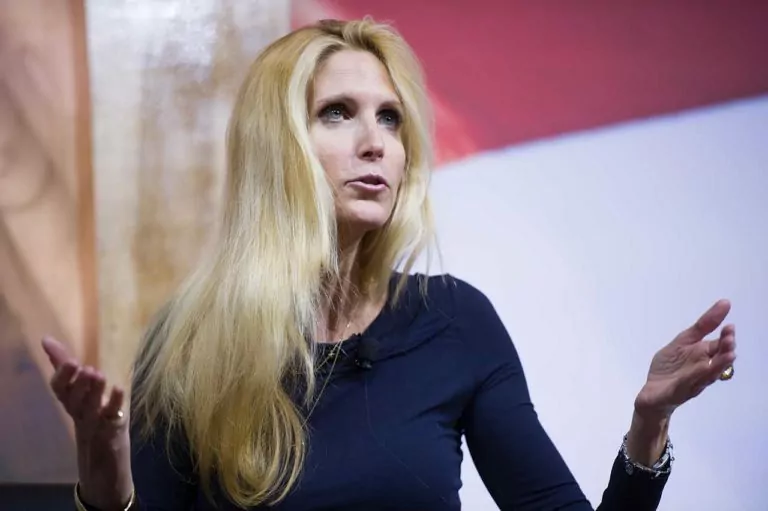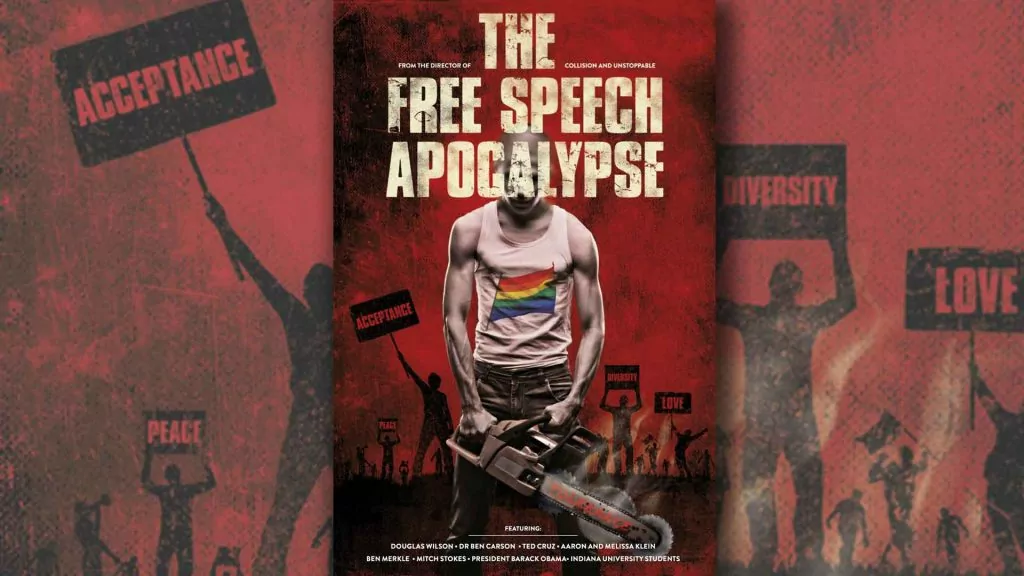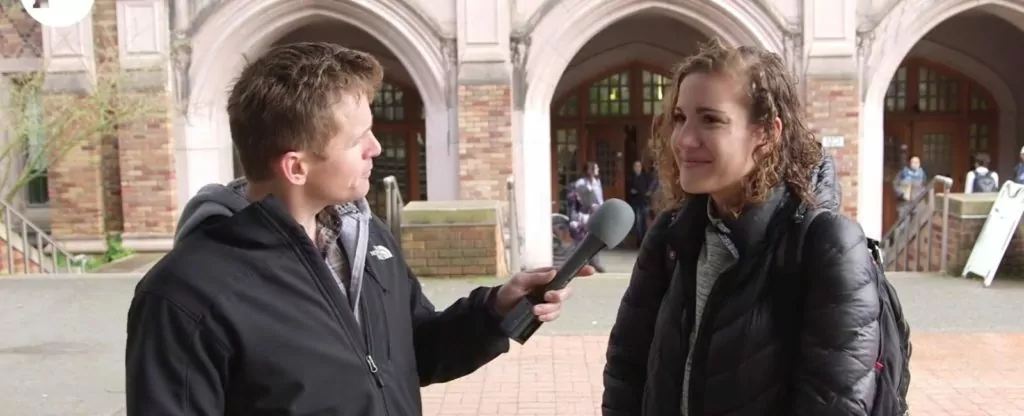This was first published in the June 2010 issue
To say American author and columnist Ann Coulter is “outspoken” is rather like saying Solomon was “a smart fellow.” Both statements are correct, in so far as they go, but they really don’t go far enough. Ann Coulter can, in a single sentence, be brilliantly insightful and insulting, and that – along with out-of-context quotes broadcast in five-second clips on the nightly news – has made her controversial.
So when she was scheduled to speak March 23, 2010 at the University of Ottawa it was predictable that there would be protests. What wasn’t predictable was the escalation of hype and hysteria that caused the speech to be canceled. The hype was started by a letter written the previous week from the University of Ottawa’s provost, Francois Houle. He warned Coulter that she should be careful what she was going to say, or else run the risk of criminal charges.
On the evening of the 23rd a mob of two thousand students surrounded the speaking venue, preventing many from entering. Those that did get in were subjected to screams from a handful of students who also made it inside. “There were five of us in there. We were loud,” one of the students told Global TV, “It was amazing that five of us could shut it, could just have them stop speaking.” Another admitted that, “Yes that was our aim, to stop Ann Coulter from speaking.” Outside students banged on the doors while others screamed: “This is what democracy sounds like! This is what democracy looks like!”
Forty minutes after the speech was scheduled to start it was canceled over safety concerns.
There were three ironies evident that night. The first, that this happened in a country that prides itself on being polite and peace-loving. To that point Coulter had done more than 100 speeches on college campuses in the US and never before been prevented from speaking by an angry mob. That only happened in Canada.
Freedom to hear
Then there was the painful irony of many in the censorious mob insisting they were only exercising their “freedom of speech.” They misunderstood it as a freedom to screech, as if they had the right to shout down anyone they disagreed with.
But of course, freedom of speech means very little if it doesn’t also include a freedom to hear – screaming at the top of your lungs just to make sure others can’t be heard is not a form of free speech, but censorship.
Here is where the media failed us – reporters did ask the mob’s leaders why they thought they had the right to stop Coulter from speaking but the students were never asked why they thought they could stop so many others from hearing. It should have been made clear that this presumptive bunch wasn’t just stepping on one woman’s freedom to speak but rather on the freedom of hundreds to hear her.
That line of questioning would have made clear the astonishing arrogance of the mob; this was a group of twenty-something-year-old students telling people old enough to be their parents, grandparents, employers and professors that no, you might want to hear this woman, but we’ve decided we know better than you what you should hear. This line of questioning would have made it clear how condescending, how disrespectful, how elitist this group of self-appointed censors was being.
But sadly reporters never brought up the crowd’s “freedom to hear.”
Legitimate limitations
The evening’s final irony was that the mob’s victims also seemed to be confused as to what free speech entails. One older woman interviewed by Global TV talked about Ann Coulter’s “right to freedom of speech” as if it were an absolute right, as if it didn’t matter what Coulter said, she should still have the right to say it.
But we know that isn’t so. There are legitimate limits to free speech. The most famous example is that you shouldn’t be allowed to yell “Fire!” in a crowded theater (unless there is a fire). Other legitimate restrictions include a ban on slander, libel, false advertising, and passing on state or military secrets. One student leader said Coulter had to be silenced because her speech would violate “safe spaces for students.” It was a baseless accusation (it’s her opponents, not her supporters, who cause riots) but if Coulter really did incite violence that would have been a good reason to restrict her speech.
However, while there are reasons to restrict speech, even in those instances it is the properly appointed authorities who have the right to do the restricting…not an angry mob.
Christian basis
Coulter’s visit to the capital revealed how confused people are about free speech. Both sides said they believed in it, but one side would only grant the freedom to people of whom they approved, while the other side seemed to be arguing for speech without restrictions – it was the censors versus the anarchists.
But if the world is confused about free speech, Christians needn’t be. We support free speech for two simple reasons.
1) Free speech helps us seek the Truth
The reason free speech matters is because Truth matters. And if we are going to seek after the Truth we need to be able to talk freely. If we’re going to find Truth, verify it, hold on to it and share it with others, we may just need to say all sorts of wrong, crazy, incorrect and offensive things. How is a Muslim ever going to learn the Truth if he can’t first explain his incorrect understanding of Jesus? How can we preach to and debate with the atheist if he can’t publicly and freely express his doubts about God’s existence? Though Thomas was wrong to doubt (John 20:24-31), how could his doubts have been answered if he wasn’t allowed to question whether Christ rose? And how foolish would the Bereans (Acts 17) have been if they turned Paul away without hearing him? Instead they risked hearing something offensive so they could test Paul’s words against the Word, and find out if he spoke the Truth. We support free speech because it is by talking, discussing, preaching, and teaching freely that the Truth is known.
2) Censorship is most often used to oppose the Truth
Lord Acton’s dictum that “Power tends to corrupt, and absolute power corrupts absolutely” is grounded in both Scripture and history. Scripture teaches us that Man is depraved and on his own cannot resist temptation (and absolute power is quite the temptation!) while history teaches us again and again that dictators are indeed corrupted by their power.
So Christians know better than to trust any king, president, prime minister, bureaucrat, panel, tribunal or judge with the awesome power of being able to decide for everyone else everything that we can and cannot read, see or hear. We can’t trust that sort of near-absolute power to anyone. We learn from Scripture that we would be incredibly naive to believe we can entrust a man with such enormous power, and we learn from history that whenever broad-ranging censorship power is given, it is abused and used to suppress the Truth. The Bible, after all, remains the world’s most censored book.
Conclusion
As Christians we know that any freedom Man is given will be misused and abused so it is certain that on some occasions people’s speech will need to be stopped. But that isn’t a path we are going to want to go down too often because we know free speech aids in the spread of the Truth.
Not everyone is so tolerant, as the incident in Ottawa shows. So let’s make use now of the freedoms we still have to speak freely about God to our neighbors, our coworkers… and maybe even to a university student or two.
Picture by Christopher Halloran / Shutterstock.com












